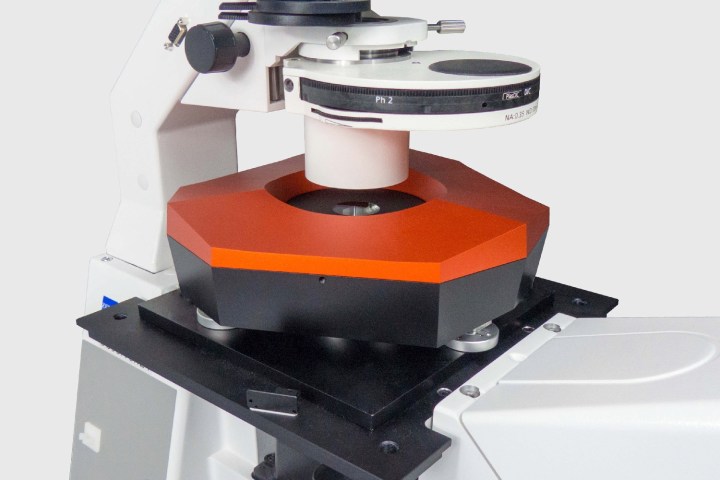
“[We have developed] a device that allows, for the first time, researchers to watch the mass of single or multiple cells in real time,” Martínez Martín-David, the scale’s inventor, told Digital Trends. “To do that, a cell is picked up by a microscopic finger known as a cantilever. This microscopic finger oscillates in the atomic scale, stimulated by an intensity modulated blue laser, and the frequency of that movement contains the information about the cell’s mass. The movement of the microscopic finger is detected by using an infrared laser.”
So far, the scale has been used to observe natural phenomena, such as the way that mammalian cells fluctuate mass by around 1 to 4 percent in mere seconds as a way of regulating their total weight. The technology also allows for the manipulation of single cells, which the researchers have been using to infect individual cells with viruses, with the goal of developing new antiviral strategies.
“A longstanding question in biology and medicine has to do with how cells regulate their mass,” Martín-David continued. “Understanding such mechanisms is very important since many diseases are linked to dysregulation of cell mass. However, our knowledge of these mechanisms is still very limited, partially due to the lack of suitable technologies. Hopefully our invention can help in this matter. Moreover, cell mass measurements have a big potential for developing new diagnostics in the future.”
And, heck, for those of us who like to kid ourselves about how well our diets are going, a scale that could tell us we lost a whole 1 percent of a couple of nanograms for taking a short walk is totally something we could sign up for!
A paper describing the research was recently published in the journal Nature.


